Happy Birthday, Jeff Ruskin
“An interface must not harm a person or, through inaction, allow a person to be harmed . ” Asimov-Raskin

In the photo: Jeff Raskin. That feeling, when you alone know how to make interfaces right, and the whole world is doing wrong.
For those who do not know Jef Raskin ( Jef Raskin ) - a specialist in computer interfaces, the author of articles on usability and the book «The Humane Interface», employee number 31 of the company Apple Computer, best known as the initiator of the project Macintosh in the late 70-x.
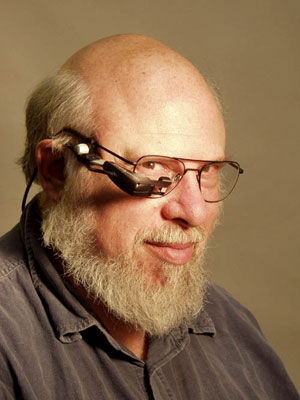
On the birthday ( March 9 ) of the old rebel Raskin, he decided to share his thoughts about the interfaces in his life. Which interface helps you personally in your life, serves as an “amplifier of intelligence"?
My first interface, where I was maximally productive at that time (and for youth tasks), was DOS Navigator , then it was replaced by Total Commander .
My brain may have dried up after graduating from the university, but it seems to me that everything connected with the interfaces has since become only worse (subjective). I even stopped searching and trying, I began to use the first thing that comes to hand (for example, the built-in editor in Habré). But if you need to take up a serious project where “you need to think,” Ijump out of the hammock and take off my skisI open ... CorelDraw X3.
Corel - the coolest thing after a white board on the entire wall and a dozen color markers. Corel has ZUI . Stable and working ZUI. For my tasks and the type of information (a lot of text and a lot of pictures) that I use to “think”, Corel fits almost perfectly (I haven’t found the best yet). Although, no, it seems that Palantir also has ZUI. (I am glad that the Habrachians are moving in this direction - icefall from his "Tectograms - a new generation of mind maps" )
Under the cut is a little legacy of Jeff Raskin.
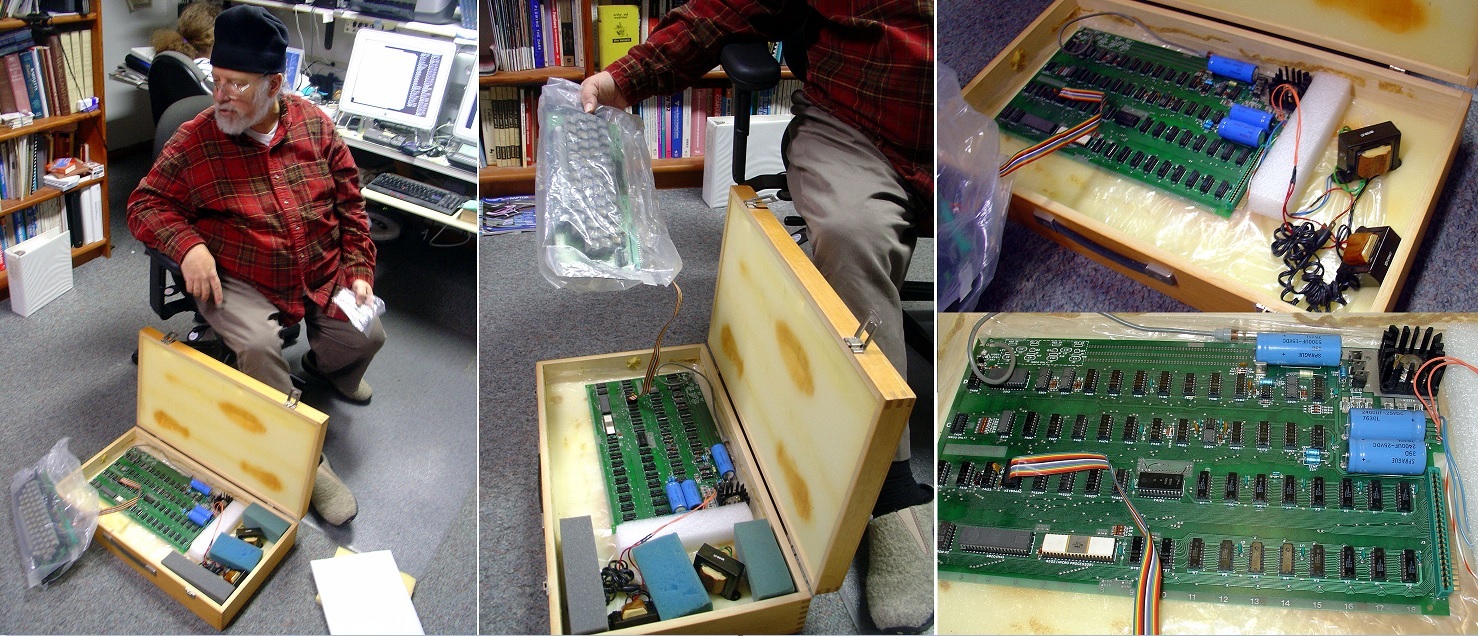
Jeff Raskin and his “first apple”

Jeff and his portable pc
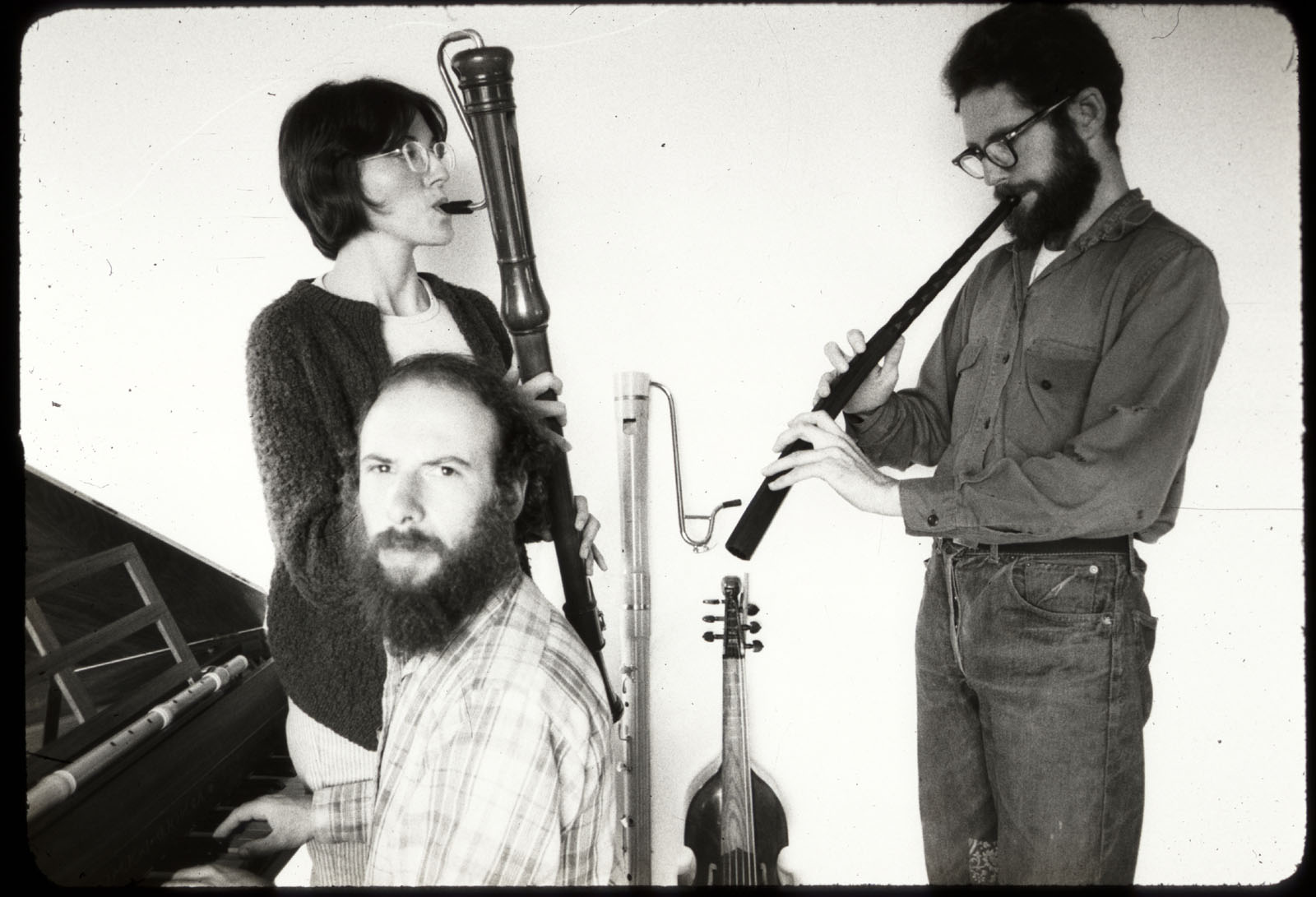
Jeff and his gang
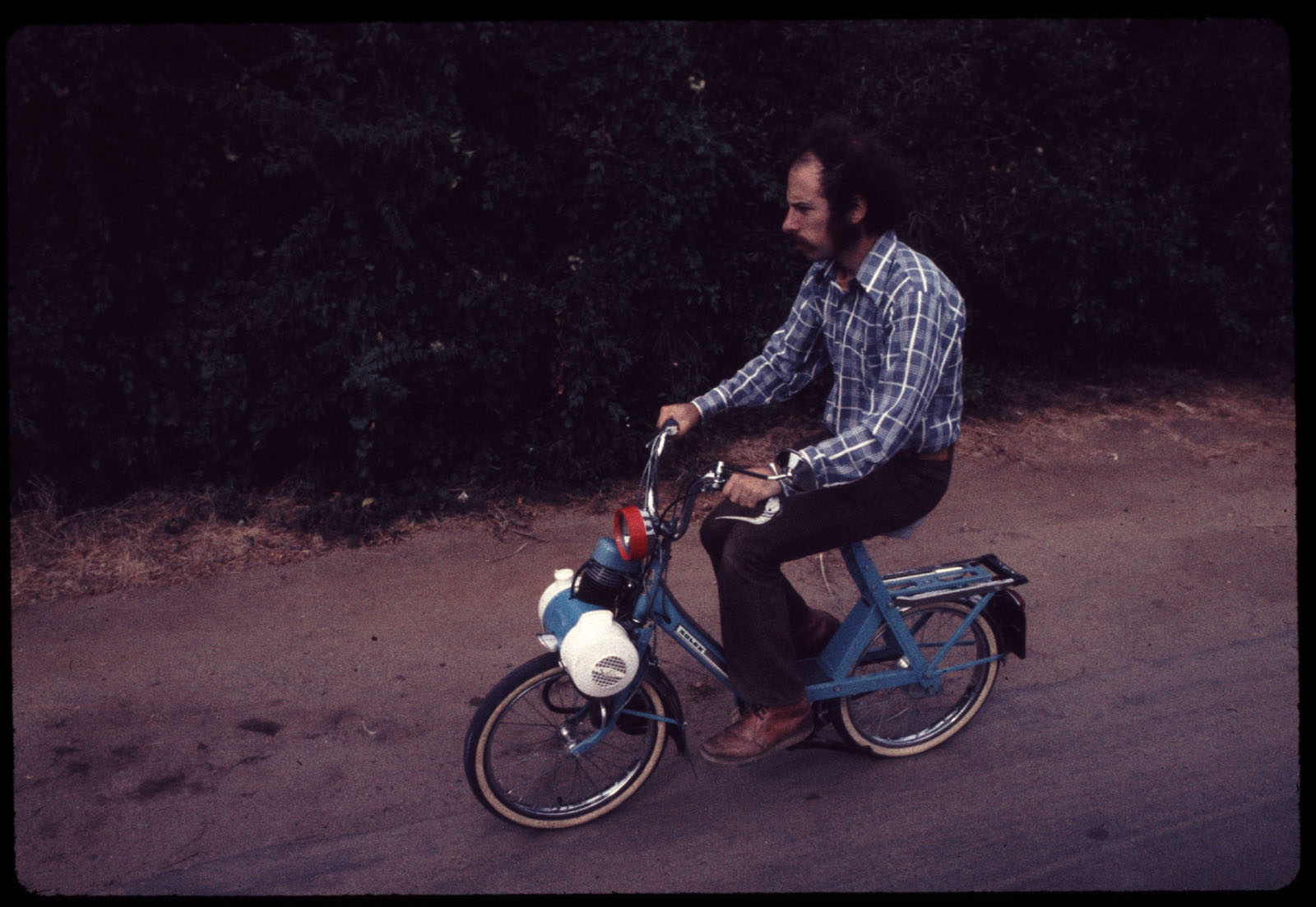
Foldable is great
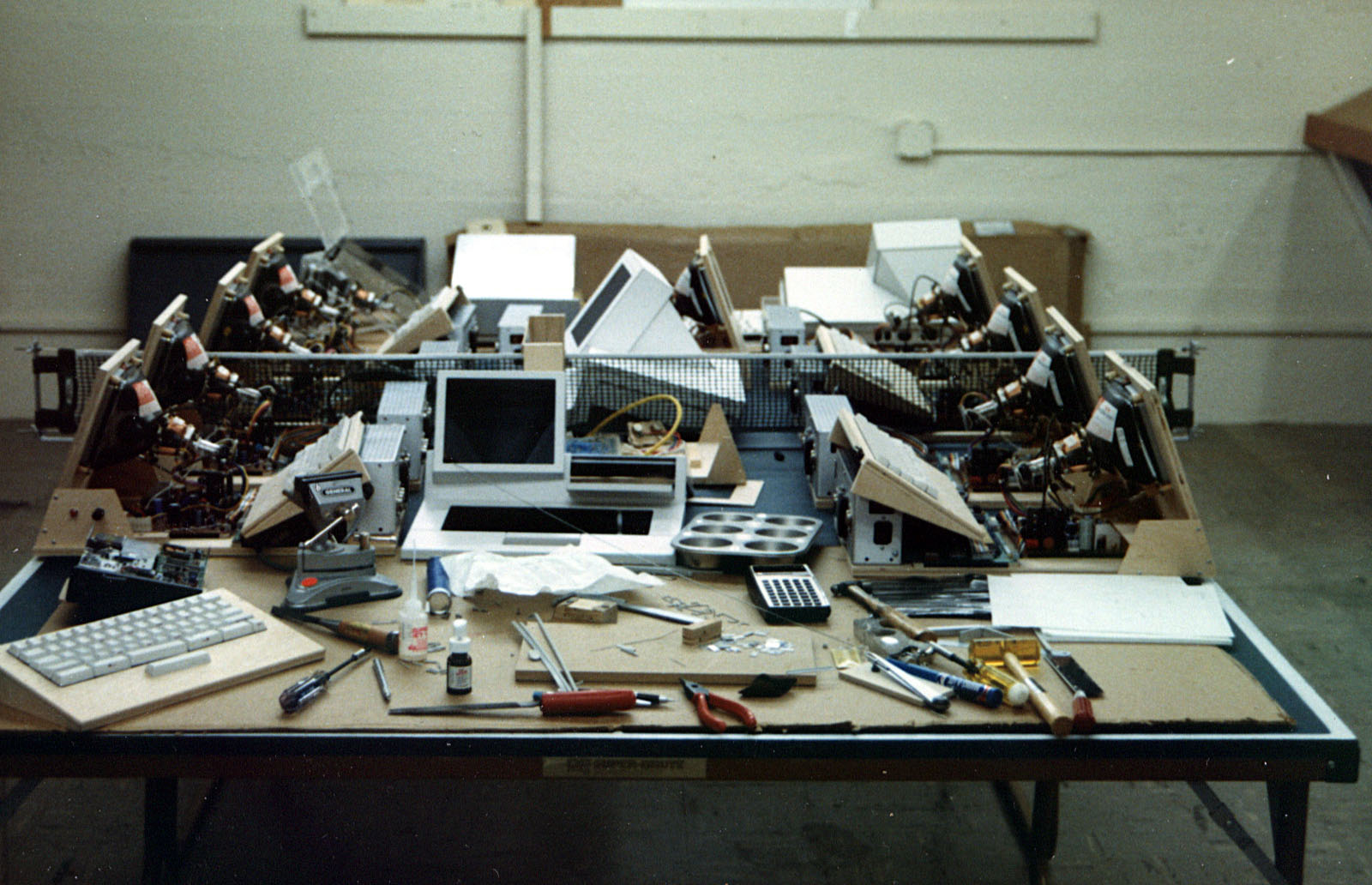
Desktop
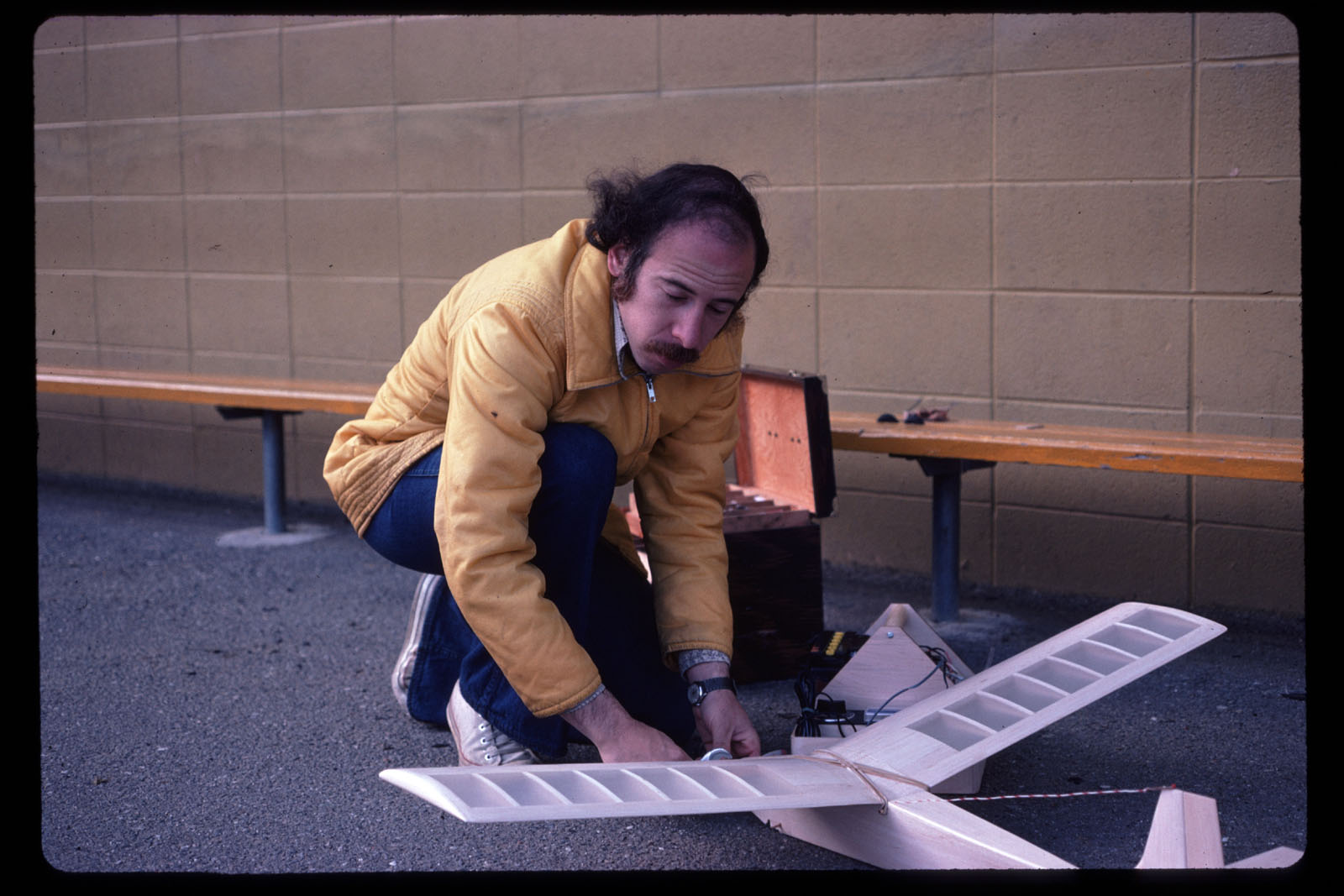
U Raskinpatent for the wing of an airplane

Prototype of a “cat” made of cardboard
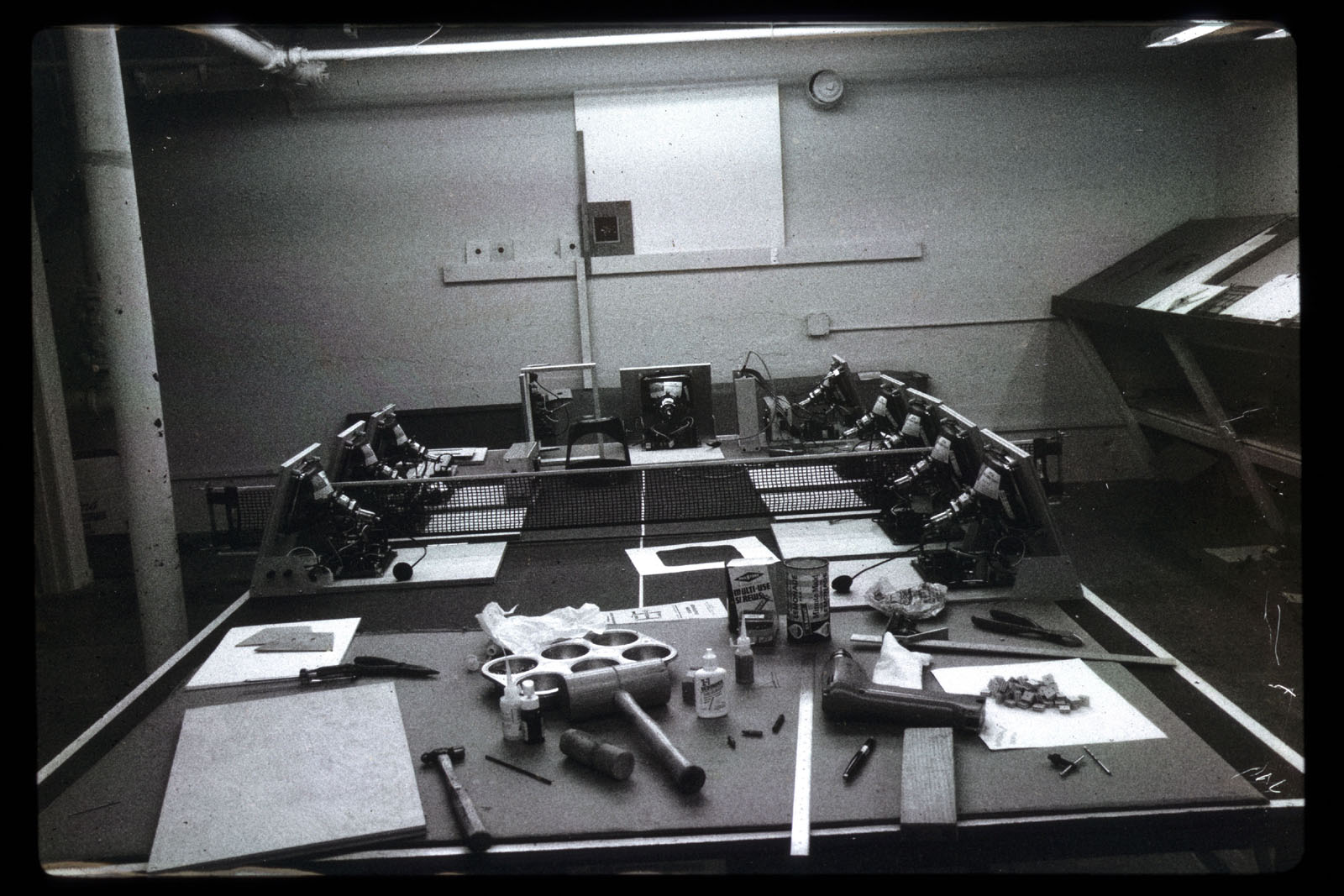
Hammers and screwdrivers

A cat in a cut
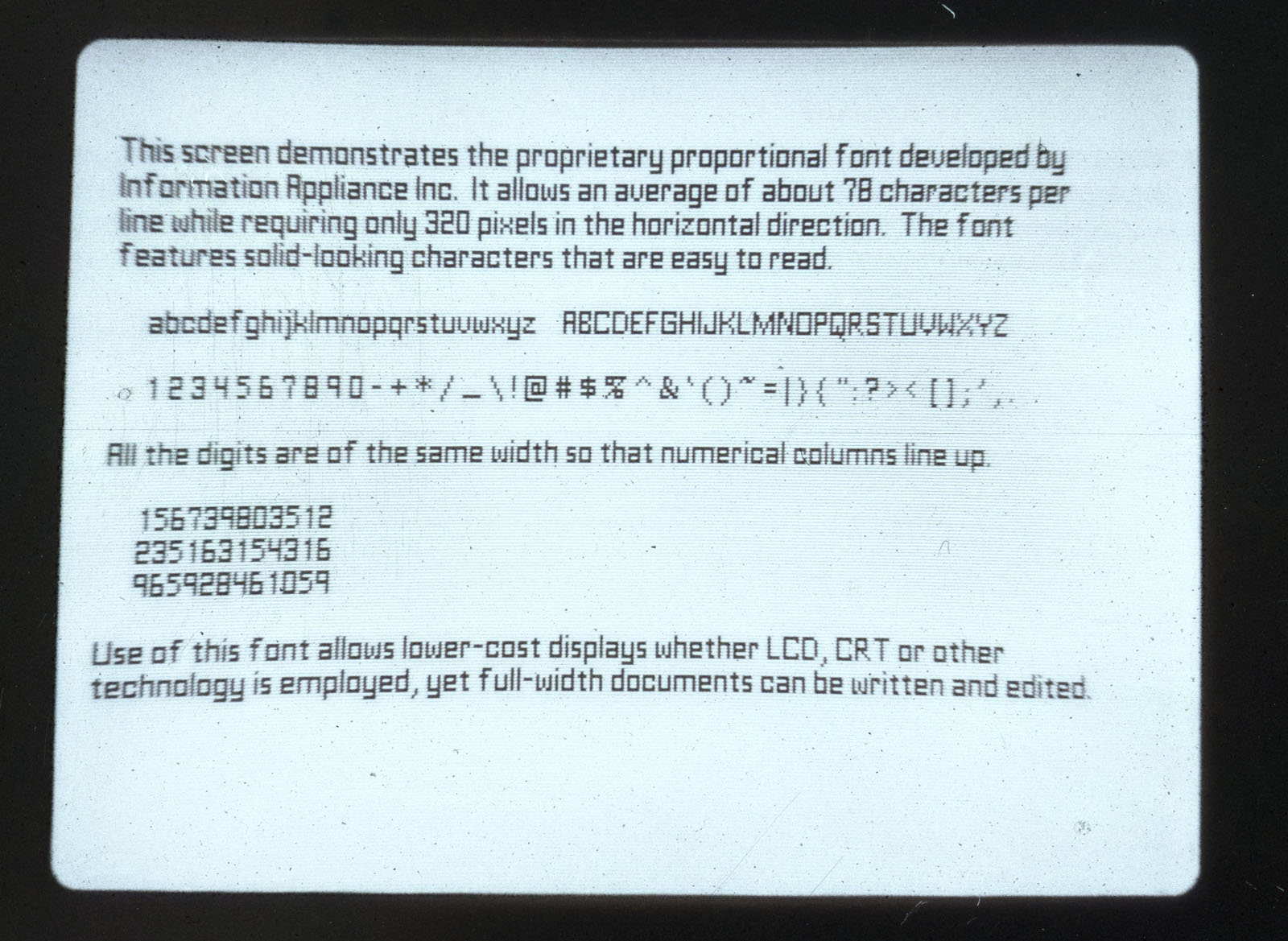
We will sew down our font for convenience

Double cursor: black - what can be removed, gray - where printing starts.
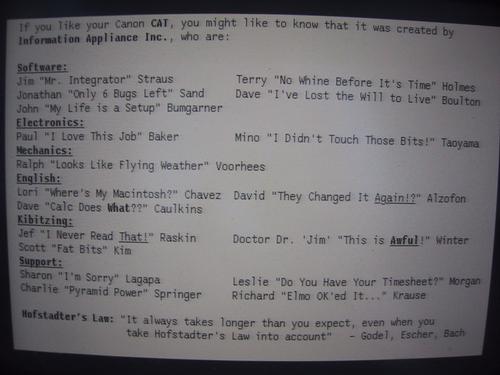
Easter egg inside a cat
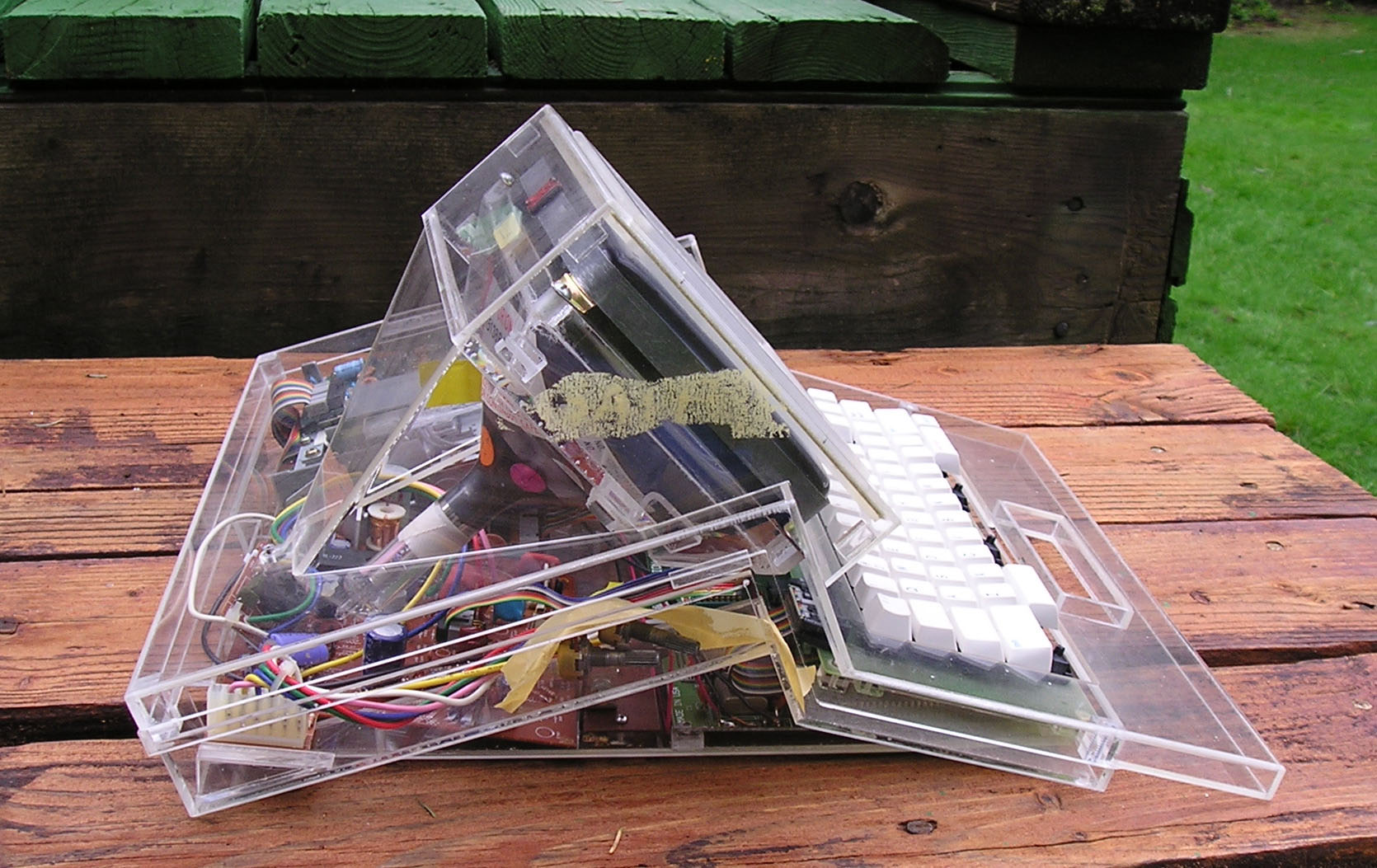
Transparency for the user

Raskin made a joystick for Apple //
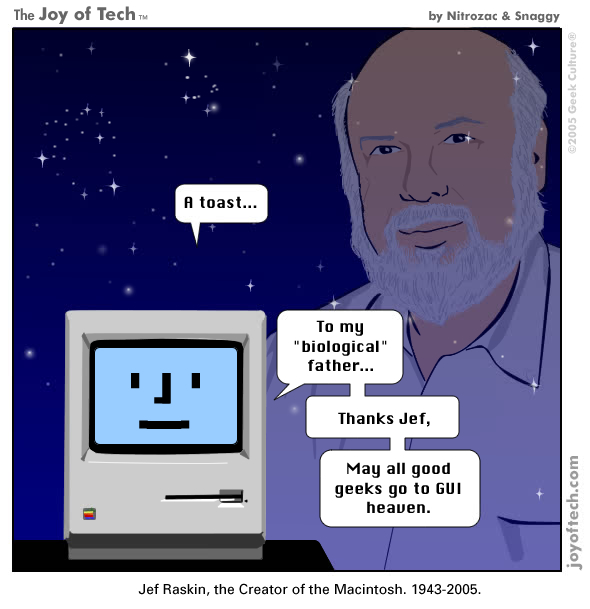
Some comics
Together with Jobs, Ruskin drew syntax help infographics

Big picture

The book must be read.
A complete list of achievements of Ruskin
Together with Edison, we continue the spring publication marathon.
I will try to get to the bottom of the source of IT-technologies, to figure out how they thought and what concepts were in the minds of the pioneers, what they dreamed about, how they saw the world of the future. Why did they think about “computer”, “network”, “hypertext”, “intelligence amplifiers”, “collective problem solving system”, what meaning they put into these concepts, what tools they wanted to achieve the result.
I hope that these materials will serve as inspiration for those who are wondering how to go “from Scratch to Unit” (to create something that was not even mentioned before). I want IT and "programming" to cease to be just "coding for the bucket", and recall that they were conceived as a lever to changemethods of warfare, education, a way of joint activity, thinking and communication, as an attempt to solve world problems and respond to the challenges facing humanity. Something like this.
March 0 Seymour Peypert
March 1. Xerox Alto
March 2 "Call Jake." History of NIC and RFC
March 3 Grace “Granny COBOL” Hopper
March 4 Margaret Hamilton: “Guys, I'll send you to the moon”
March 5 Hedi Lamarr. And to shoot a movie in a naked movie and to shoot a torpedo at an enemy
on March 7 The magnificent six: girls who counted a thermonuclear explosion
on March 8 "Video games, I am your father!"

In the photo: Jeff Raskin. That feeling, when you alone know how to make interfaces right, and the whole world is doing wrong.
For those who do not know Jef Raskin ( Jef Raskin ) - a specialist in computer interfaces, the author of articles on usability and the book «The Humane Interface», employee number 31 of the company Apple Computer, best known as the initiator of the project Macintosh in the late 70-x.

- Led Steve Jobs to the Xerox PARC .
- I wore Google glasses before Google.
- I hated a computer mouse.
- Created a computer cat .
- I did not like the GUI , I dreamed about ZUI .
- One cursor was not enough for him; he made two.
- Conducted by the orchestra.
- Together with Donald Knut, he played the instruments , and was also a fan of the organ.
- He wrote a programming language for the humanities , which contained 6 instructions.
On the birthday ( March 9 ) of the old rebel Raskin, he decided to share his thoughts about the interfaces in his life. Which interface helps you personally in your life, serves as an “amplifier of intelligence"?
My first interface, where I was maximally productive at that time (and for youth tasks), was DOS Navigator , then it was replaced by Total Commander .
My brain may have dried up after graduating from the university, but it seems to me that everything connected with the interfaces has since become only worse (subjective). I even stopped searching and trying, I began to use the first thing that comes to hand (for example, the built-in editor in Habré). But if you need to take up a serious project where “you need to think,” I
Corel - the coolest thing after a white board on the entire wall and a dozen color markers. Corel has ZUI . Stable and working ZUI. For my tasks and the type of information (a lot of text and a lot of pictures) that I use to “think”, Corel fits almost perfectly (I haven’t found the best yet). Although, no, it seems that Palantir also has ZUI. (I am glad that the Habrachians are moving in this direction - icefall from his "Tectograms - a new generation of mind maps" )
Under the cut is a little legacy of Jeff Raskin.

Jeff Raskin and his “first apple”

Jeff and his portable pc

Jeff and his gang

Foldable is great

Desktop

U Raskinpatent for the wing of an airplane

Prototype of a “cat” made of cardboard

Hammers and screwdrivers

A cat in a cut

We will sew down our font for convenience

Double cursor: black - what can be removed, gray - where printing starts.

Easter egg inside a cat
instruction
Also try leaping (either way) to the pattern: QWERASDFZXCV [Press and hold the Leap key, press and hold SHIFT, type the first four letters of three rows on the keyboard: qwer asdf zxcv, release SHIFT, release Leap key]
press and hold USE FRONT N (the EXPLAIN command)
press and hold USE FRONT N (the EXPLAIN command)

Transparency for the user

Raskin made a joystick for Apple //

Some comics
Poster
Together with Jobs, Ruskin drew syntax help infographics
Jef Raskin said it was code.
Steve Jobs said it was art.
You decide.

Big picture
Book

The book must be read.
Interface elements can often be called familiar in the event that they can be easily used by a “blind” user. Interfaces based on the principles set forth in this book can often be used even by blind users — and in relation to what is outside our locus of attention, we are all, in the most literal sense, blind.
The task of designers is to create interfaces that do not allow habits to cause problems for users. We must create interfaces that, firstly, purposefully rely on the human ability to form habits and, secondly, develop user habits that simplify the course of work. In the case of an ideal human-oriented interface, the share of the interface itself in the user's work should be reduced to the formation of useful habits. Many of the problems that make software products difficult and inconvenient to use are due to the fact that the used human-machine interface does not take into account the useful and harmful properties of the human ability to form habits. A good example is the tendency to provide for several ways to solve the same problem. In this case, many options lead to a shift in the user's locus of attention from the task itself to the choice of path.
- Book in html (but with annoying ads)
- Habrastatya with quotes
- List of Raskin's articles
- An article from Computerra "The Fighter with the System"
- UPD : advised a detailed story about Ruskin - “A bearded boy and his planes”
A complete list of achievements of Ruskin
“I am only a“ footprint ”, but I am proud to be this“ note ”, and I myself have become one. Ultimately, my work is to identify principles and develop the theory of interface design, and this work, since many could do what I did, probably also deserves no more than a “note”. The emergence of a worldwide network looks like the most important part of the computer revolution, if you look back at this entire period of the discoveries of the century. ” Jeff Raskin
Together with Edison, we continue the spring publication marathon.
I will try to get to the bottom of the source of IT-technologies, to figure out how they thought and what concepts were in the minds of the pioneers, what they dreamed about, how they saw the world of the future. Why did they think about “computer”, “network”, “hypertext”, “intelligence amplifiers”, “collective problem solving system”, what meaning they put into these concepts, what tools they wanted to achieve the result.
I hope that these materials will serve as inspiration for those who are wondering how to go “from Scratch to Unit” (to create something that was not even mentioned before). I want IT and "programming" to cease to be just "coding for the bucket", and recall that they were conceived as a lever to change
March 0 Seymour Peypert
March 1. Xerox Alto
March 2 "Call Jake." History of NIC and RFC
March 3 Grace “Granny COBOL” Hopper
March 4 Margaret Hamilton: “Guys, I'll send you to the moon”
March 5 Hedi Lamarr. And to shoot a movie in a naked movie and to shoot a torpedo at an enemy
on March 7 The magnificent six: girls who counted a thermonuclear explosion
on March 8 "Video games, I am your father!"
